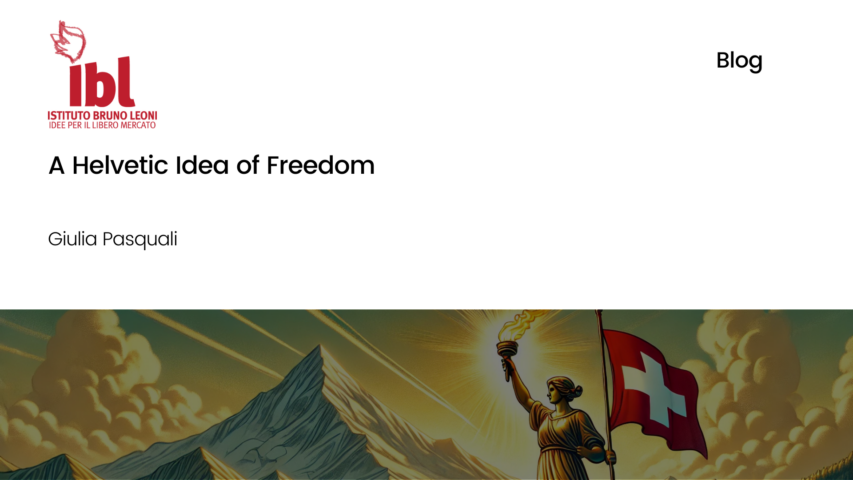A Helvetic Idea of Freedom

A Helvetic Idea of Freedom
Giulia Pasquali // 3 August 2017
«Instead of conceding itself to a large sovereign decision-maker, Switzerland has preferred to remain a free international negotiator» argues Dr Carlo Lottieri, Director at the Istituto Bruno Leoni, in his recent book A Helvetic Idea of Freedom (published in Italian in early 2017). Dr Lottieri portrays the Swiss nation as a «voluntary» federal republic, unified by the consent of those who are part of it: a country based on free relationships. According to the author, this is the model to be sought in Europe, not the one suggested by the large majority of intellectuals which aims to a deeper political integration.
Yet, what is the uniqueness of Switzerland’s federalism? One of the fundamental factors of the Swiss success lays in the central role of property. Essential to the freedom of the individual, the protection of property can only be guaranteed by local competing political powers. In other words, throughout its fascinating history, Switzerland was able to find in institutional pluralism and in the vast number of internal centres of governance the best way to protect civil and economic liberties.
This said, it is important to note that the dispersion of power, which today seems to be almost exclusively a Swiss characteristic, was rather common in most of Europe in the past. Hence, the Cantons’ distinctiveness originates from the persistence of institutions, practices and social relations developed in the Middle Age. By contrast, in the rest of Europe these practices were subsequently destroyed by the establishment of highly centralised governments. Thanks to its geographical location and its strong small institutions, the Helvetic society was able to partially avoid the transformation that led to the growth of the modern state. Thus, when looking at Switzerland, we need to focus primarily on the 500 years before Napoleon’s invasion in 1798.
Since the creation of the Old Swiss Confederacy, the concept of property has always been at the very heart of the country’s political debate. In particular, the idea of “shared property” represents the entire grounding of the Helvetic nation. Originally, the Cantons were institutions in which civic relationships was contingent to the common availability of certain goods. The ability to create common defence measures, for instance, originated from communal property and the administration of certain resources. «Common goods were the grounds for a civil dimension starting from the administration of resources and eventually also including the rules of coexistence» says Dr Lottieri. Therefore, we can understand why the historical origins of the so-called Helvetic federalism are deeply tied with the notion of property federalism, a mode of government alien to the logic of the modern state.
Today’s Europe should aspire to this specific form of government. Indeed, we can argue that the ancient Helvetic liberties are the real alternatives to Europe’s “ever closer union” project. In a cultural scenario that is largely changed, the challenge is to reinvent a political order that is mostly decentralised and that is able to put the sovereign logics of modern states aside.
Nevertheless, this is a challenge that must be taken up, because only through institutional pluralism we can have a real assurance of freedom. Indeed, in the present situation, the European Union risks to become a very unhospitable place for individual and economic liberties and a political area where it will be hard to respect social life. This is because the European ideal of equality approved by those asking for deeper political integration is not compatible with the respect of individual freedom.
By recognising the complexity of social and historical realities and by offering to its citizens political and social institutions that serve a world shaped by diversity, Switzerland represents a better and more truthful idea of Europe. It is no wonder that the majority of the Swiss are extremely doubtful about the EU but are proudly attached to their small local polities.
The post was first published in Italian on the Istituto Bruno Leoni’s blog.
EPICENTER publications and contributions from our member think tanks are designed to promote the discussion of economic issues and the role of markets in solving economic and social problems. As with all EPICENTER publications, the views expressed here are those of the author and not EPICENTER or its member think tanks (which have no corporate view).



